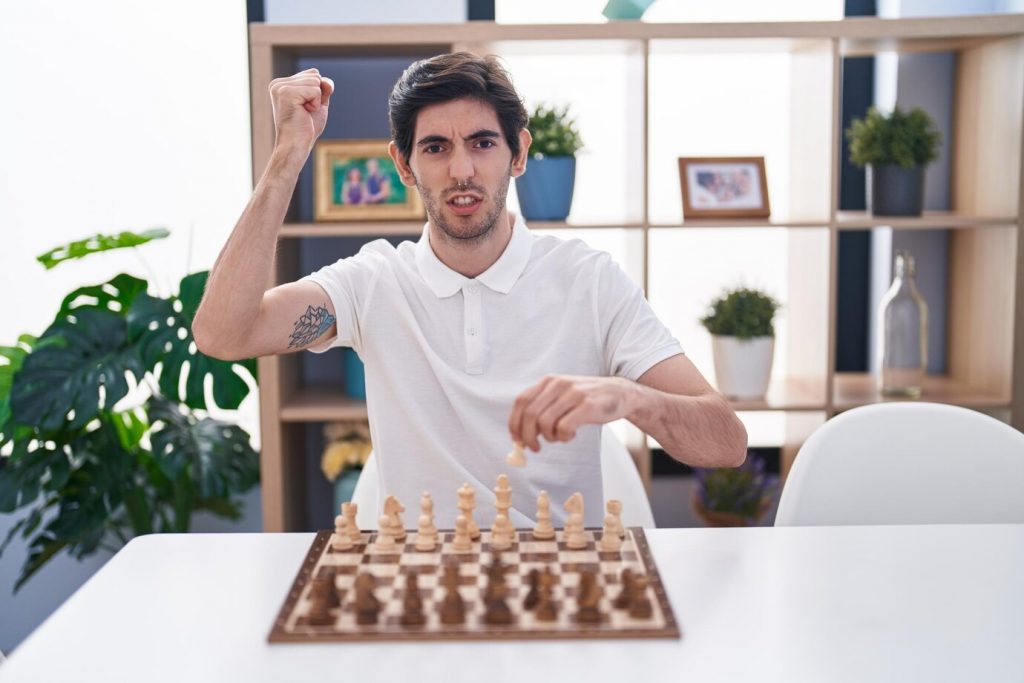Common Traits of Successful Chess Coaches
- Communication: This is perhaps the most important ability. How effectively the chess coaches are able to communicate with the students, imparting knowledge, enabling the students to apply it practically and at the same time motivating the students, build anticipation. At times push the student and at times ask them to take a step back – all of these are very dependent on the coach’s ability to communicate effectively, with authority and inspiration.
- Pushing the student to discipline and consistency: No success comes without consistent hard work. And unfortunately, hard work is boring. Children, and even adults, are seldom self-motivated. On occasions, where the student fails, the ability of the chess coaches to inspire dedication, discipline and consistency in the student is a critical factor for success.
- Committed to the student: You would come across chess coaches who may have more committed approaches than others. They actively track the progress of their students, and give feedback when it matters. They would prepare plans for what they feel would be tailored for the student and ensure they are chasing a target in their plans. This trait results in having classes that are planned, not improvised on the spot.
- Dealing with failures: Players don’t always win. They are bound to have good and bad results. Good chess coaches make sure poor results don’t upset players, rather players are able to draw maximum learnings from the games played.
- Navigating the tournament circuits: End of day, the way for players to measure their progress is to play offline tournaments in person. Chess coaches who can guide their students to advise on such matters are essential to convert the student’s interest to a long term path and serious pursuit.
Qualities of an Ideal Chess Coach
- Deep Knowledge and Expertise
- An ideal coach has a strong understanding of all aspects of chess: openings, middlegame strategies, endgames, and tactics.
- They should be able to explain complex concepts in a way that’s easy to understand.
- Look for coaches with a proven track record, such as titles (e.g., FIDE Master, International Master, Grandmaster) or experience in competitive play.
- Patience and Adaptability
- Chess improvement takes time, and a good coach understands this. They should be patient and willing to work at your pace.
- They should adapt their teaching style to suit your learning preferences, whether you’re a visual learner, a hands-on player, or someone who thrives on theoretical knowledge.
- Strong Communication Skills
- The best coaches can break down complex ideas into simple, actionable steps.
- They provide clear feedback and constructive criticism, helping you learn from your mistakes without discouraging you.
- They listen to your concerns and tailor their lessons to address your specific needs.
- Passion for Teaching
- A great coach is not just a strong player but also someone who loves teaching and sharing their knowledge.
- They should be enthusiastic about your progress and genuinely invested in helping you achieve your goals.
- Focus on Both Strengths and Weaknesses
- An ideal coach identifies your strengths and helps you build on them while also addressing your weaknesses.
- They create a balanced training plan that covers all aspects of your game, from openings to endgames.
- Experience with Players at Your Level
- Different coaches specialize in different levels of play. A coach who excels at teaching beginners may not be the best fit for an advanced player, and vice versa.
- Look for a coach who has experience working with players at your skill level and understands the challenges you face.
If you’re searching for a chess coach to help you achieve structured growth, Caissa School of Chess has become a top choice for players starting their chess learning journey. Consider exploring their offerings before making your decision.
Now, since we are looking at chess coaches in particular, it is obvious that the chess coaches ought to have a bunch of Chess skill sets to be able to benefit students. What are they?
Types of Chess Coaches
- Personal Coaches
- One-on-one coaching offers personalized attention and tailored lessons.
- Ideal for players who want focused guidance and a customized training plan.
- Examples: Grandmasters, International Masters, or experienced FIDE-rated players.
- Group Coaches
- Group coaching is often more affordable and provides opportunities to learn from peers.
- Suitable for beginners and intermediate players who enjoy a collaborative learning environment.
- Examples: Coaches at chess clubs, schools, or online group classes.
- Online Coaches
- Online coaching has become increasingly popular, offering flexibility and access to top coaches worldwide.
- Ideal for players who prefer learning from home or have busy schedules.
- Examples: Coaches on platforms like Chess.com, Lichess, or specialized chess academies like Caissa School of Chess.
- Mentors and Role Models
- Some coaches serve as mentors, offering not just technical guidance but also inspiration and motivation.
- Ideal for players who want a holistic approach to chess improvement.
- Examples: Former champions, experienced players, or coaches with a strong reputation in the chess community.
How to Find the Right Chess Coach
- Define Your Goals
- Are you looking to improve your rating, prepare for tournaments, or simply enjoy the game more?
- Your goals will help you narrow down the type of coach you need.
- Research and Reviews
- Look for coaches with positive reviews and testimonials from students.
- Check their credentials, playing strength, and teaching experience.
- Trial Lessons
- Many coaches offer trial lessons to see if their teaching style suits you.
- Use this opportunity to assess their communication skills, patience, and ability to explain concepts clearly.
- Ask for Recommendations
- Seek recommendations from fellow chess players, clubs, or online communities.
- Platforms like Caissa School of Chess often have a network of trusted coaches.
- Consider Your Budget
- Coaching fees can vary widely depending on the coach’s experience and reputation.
- Balance your budget with the level of expertise you need.
Chess Traits of Successful Chess Coaches
- Play Strength: Look for chess coaches who are at least 400-500 points above the student. It is not always important that you engage a titled player as a coach. A significant enough rating gap is good. However, a coach with a 400 point rating gap, and strong non-Chess traits is a fantastic combination.
- Specific Chess wants: For intermediate-advanced students, at times there are specific gaps players want to address. For example, sometimes players engage specific chess coaches to build an opening repertoire. For still more advanced players, they may feel the need to address a particular opening. Naturally in such cases, the chess coaches need to be good with those specific skills.
- Tactical vs Positional play: For beginners, and often children who are in the initial phases of their journeys, often chess coaches work a lot on tactical plays and puzzles. This is an essential part of study when preparation begins.
However, with time, as students mature as players, there is a need to address positional and strategic understanding of the game. In such cases, it is important for the coach to be good at one of these two aspects.
It is also important to realize that choosing an ideal coach is not a purely-objective decision. It is heavily dependent on the student. There is no one size fits all approach, and hence varies with individual needs and preferences.
Therefore, along with the above parameters, consider your personal needs to find a coach who will guide you to take your chess skills to the next level.
Choosing the right chess coaches are a subjective decision influenced by individual needs and preferences. Along with the traits mentioned above, consider exploring Caissa School of Chess for tailored coaching programs that meet your personal requirements. They could be the ideal partner to guide you on your chess journey.









